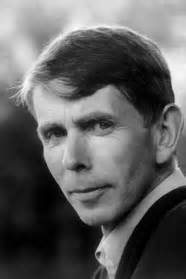A Quote by Stephen King
Description begins in the writer’s imagination, but should finish in the reader’s.
Quote Topics
Related Quotes
The characters within a book were, from a certain point of view, identical on some fundamental level ? there weren't any images of them, no physical tangibility whatsoever. They were pictures in the reader's head, constructs of imagination and ideas, given shape by the writer's work and skill and the reader's imagination. Parents, of a sort.
We must be forewarned that only rarely does a text easily lend itself to the reader's curiosity... the reading of a text is a transaction between the reader and the text, which mediates the encounter between the reader and writer. It is a composition between the reader and the writer in which the reader "rewrites" the text making a determined effort not to betray the author's spirit.
It is easier for the reader to judge, by a thousand times, than for the writer to invent. The writer must summon his Idea out of nowhere, and his characters out of nothing, and catch words as they fly, and nail them to the page. The reader has something to go by and somewhere to start from, given to him freely and with great generosity by the writer. And still the reader feels free to find fault.
Learn a lot about the world and finish things, even if it is just a short story. Finish it before you start something else. Finish it before you start rewriting it. That's really important.
It's to find out if you're going to be a writer or not, because that's one of the most important lessons.
Most, maybe 90% of people, will start writing and never finish what they started. If you want to be a writer that's the hardest and most important lesson: Finish it. Then go back to fix it.
How often I have tried to tell writing students that the first thing a writer must do is love the reader and wish the reader well. The writer must trust the reader to be at least as intelligent as he is. Only in such well wishing and trust, only when the writer feels he is writing a letter to a good friend, only then will the magic happen.
The writer trusts nothing she writes-it should be too reckless and alive for that, it should be beautiful and menacing and slightly out of control. . . . Good writing . . . explodes in the reader's face. Whenever the writer writes, it's always three or four or five o'clock in the morning in her head.



































